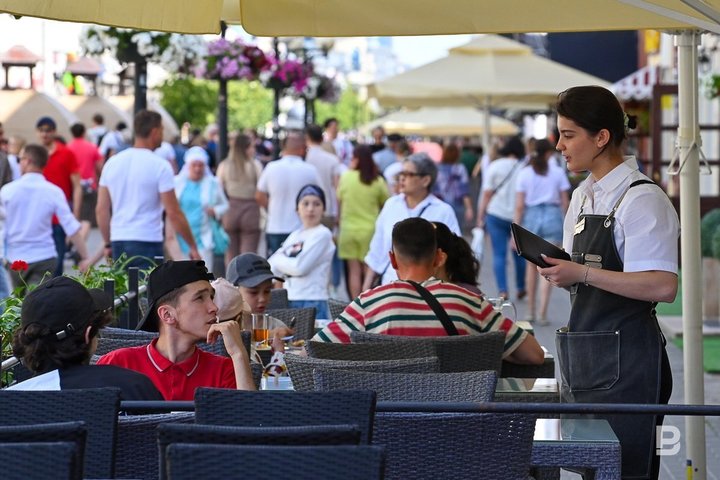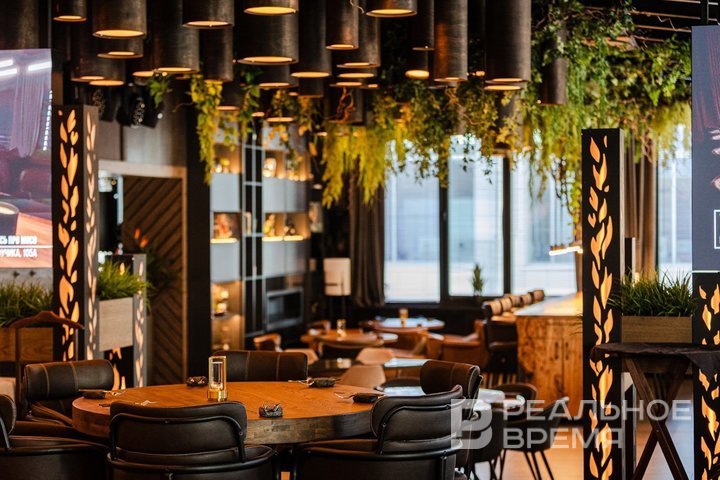Tatarstan restaurateurs increase revenue to 37.7 bn rubles thanks to tourists
Catering business owners attribute this to the BRICS effect, while hoteliers complain of incomplete occupancy

The turnover of establishments in Tatarstan from January to May 2025 amounted to 37.7 billion rubles, according to data published this week in the report by Tatstat on the socio-economic situation of the republic. In the first quarter of the year, turnover stood at 21.6 billion roubles, while in April this figure reached 7.9 billion, and in May — 8.9 billion roubles, averaging 4% higher than last year’s values. Industry experts explain that the effect of the BRICS summit, which attracted many new visitors to Kazan, has had an impact.
“The BRICS summit has a positive impact on business”
The increase in restaurateurs’ turnover partly reflects rising prices in the catering sector, according to Galina Sharafutdinova, CEO of the Association of Restaurateurs and Hoteliers of Tatarstan. The interviewee believes that rising raw material costs are forcing establishment owners to revise their menu prices. However, this is not the only reason for the revenue growth. An important role is also played by the increased flow of visitors, especially due to Kazan’s growing popularity among tourists.

At the same time, the expert does not anticipate a significant increase in profits in the restaurant sector in the second half of the year: “We expect that, without major event-driven activities, turnover growth will be moderate this year. Kazan has been declared the cultural capital of the Islamic world for 2026, and this may lead to an increase in visitor flow, especially from OIC countries. However, international activity depends on foreign policy and the overall global situation.”

Menu prices have risen due to tax burdens and staff wages
Alexey Yakimov, owner of Khoroshaya Kompaniya management company (Artel bistro, Na Bokalchik bar — editor’s note), noted that it is difficult to give a definitive assessment of the situation due to the large number of operating establishments.
“The tourist flow has had some impact on venue occupancy; however, no significant increase in visitors has been recorded. Financial indicators show revenue growth mainly due to menu price increases. The primary reason for the price revision has been rising labour costs and tax payments,” he told Realnoe Vremya.
According to the interviewee, only a few establishments focused on tourists have noted a slight increase in guests. The expert suggests that the autumn-winter period may prove challenging for the sector, potentially leading to the closure of some venues.

Hoteliers complain of low occupancy
Inga Gadzaova, head of the Association of Hotels of Kazan and Tatarstan, emphasised that last year’s data cannot serve as a basis for comparison, as the previous year was unique due to a calendar packed with events that attracted a significant number of tourists.
“If we assess the most recent large-scale event — VK Fest — occupancy there also did not reach the peak we would have liked and expected. Frequent airport closures and the introduction of the drone threat regime do not significantly affect tourist flow. Perhaps this year tourists have simply chosen other cities, maybe they want to relax and change direction, visiting other regions,” she said.
According to the expert, there is little point in collecting monthly industry data, as much can change. It is especially difficult to forecast hotel occupancy under current conditions. “We all understand very well that our forecast is based on last year. That is, we hoped for more, and many expected it, but unfortunately, the actual occupancy turned out less positive,” she lamented.